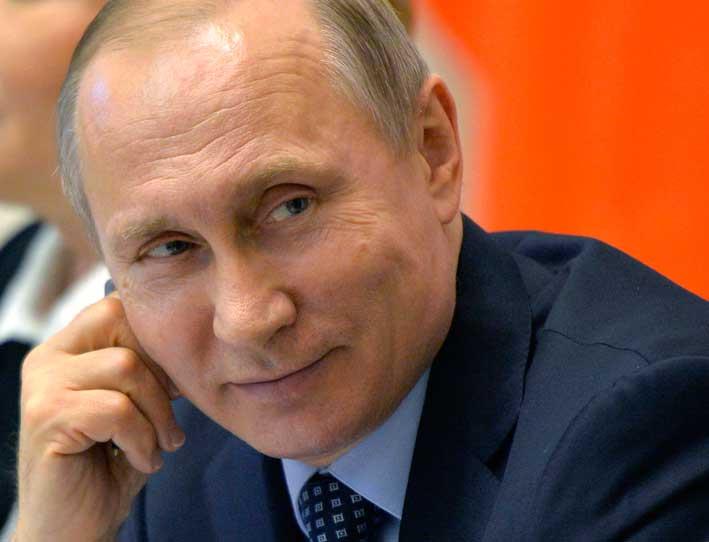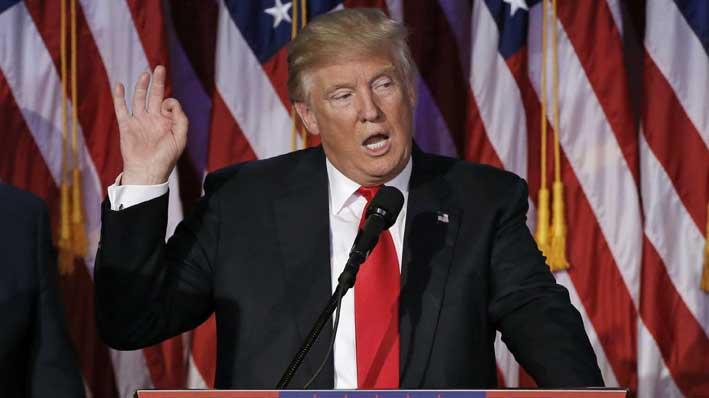2016 has seen the biggest political earthquake in recent years with Donald Trump's election, Brexit, and the rise of the European far right. Its reverberations are inescapable throughout the global political landscape and have revealed an out-of-touch establishment who is now under fire. The Malta Independent met with the United States Deputy Assistant Secretary of State for Western Europe and the European Union Conrad Tribble to discuss Malta's role at the EU Presidency in the first half of 2017 and the challenges the country will face.
What is the current state of the relationship between the USA and the EU?
I would characterise it as currently being very good and active. If you think about the EU as formally being a trade and economic entity, it has emerged as an important player on a whole range of political and security issues; and on every one of those issues, the USA and the EU have worked very closely together
How do the EU and USA work together on crucial issues?
Oh, very closely, very closely. US and EU officials - Commission, Council, and EEAS (European External Action Service) - talk regularly about every important foreign policy issue; the dialogue is very active from the highest levels on down to expert level. As just one example: Secretary of State John Kerry and EU Commissioner for Foreign Affairs Federica Mogherini and their teams were in constant contact in negotiating the Iran nuclear deal, trading ideas, coordinating their efforts, and ensuring that the US and Europe were in sync with each other throughout the process.
Our officials are doing the same in supporting the Government of National Action in Libya and trying to find a political solution in that country.
Next year in October, the EU will host the fourth Our Ocean conference here in Malta, taking over and continuing an important global environmental initiative that Secretary Kerry started. Simply put, the US and EU are each other's most important global partners and have a huge shared interest in working together.

And does the USA envisage a strong relationship with Malta during the country's EU presidency?
Yes, absolutely. In fact, that's largely why I'm here. The presidency country has an important role in leading the EU and we look forward to consulting regularly with Malta during its presidency, in Brussels, here in Valletta, and in Washington. We know Malta will be focusing on issues that affect us and the transatlantic relationship, so it's important that our two countries coordinate closely.
President-elect Donald Trump and Brexit campaigner Nigel Farage have had a well publicised relationship, with the former appearing at a number of Mr Trump's campaign rallies. What sort of future relationship do you envisage for the EU and the USA?
The value and importance of the US and EU relationship both economically and politically will not change according to the President. There are plenty of decisions the Trump administration will have to make. While I cannot speculate on what his policies will be, I cannot imagine that we would see any regressive shift even as the EU goes through its transition process and Brexit negotiations.
The EU-US trade deal, TTIP, which is currently under negotiation, is already struggling with many hurdles in Europe. Trump's campaign was defined as being overtly critical of international trade deals. Does TTIP have a future?
I think it does. Currently, there are conversations and negotiations with the EU Commission which looks to advance TTIP as far as possible in order to achieve an agreement were we can identify what still needs to done. At some point, the next administration will have to see whether or not it would want to pick it up again.
Clearly, there is going to be some pause due the various elections around Europe which will take place over the first few months of 2017; but the strategic and economic rationale for TTIP is still as strong as ever.
With TTIP, the US and the EU have the opportunity to set the standards for global trade agreements on the environment, labour, and consumer protection.
TTIP, itself, has never been controversial in the US. Whilst, there has been a lot of discussion on trade during the election campaign, particularly about the Trans Pacific Partnership, the idea and the importance of the US and Europe, as the two biggest economies in the world, to build and strengthen their relationship even further in this era of globalisation is still very high.

Globalization has played a big role in recent months in recent politics, with Brexit and Trump. Do you think it played a factor in the electoral result?
Globalization is a process that is underway, that has been happening for decades and will continue moving forward. I think it's fair to say that in Europe and the United States globalization has been transformative both positively and disruptive.
Adapting to globalization is one of the challenges both the EU and the US face and I think you see echoes of that in a lot of the political campaigns, which is not surprising, but I think that it is an issue that governments need to wrestle with. It is certainly possible to shape globalisation in order for it to be of benefit to every citizen.
There is a growing tide of populism within Europe, with Brexit and Renzi's resignation, and right wing parties gaining popularity in France, Austria, and the Netherlands, Do you think that populism will slowly being to define the European political landscape?
I don't see it defining the political landscape. It's certainly a factor or a movement that needs to be addressed. Populism, generally, arises from concrete contexts that can be addressed with the right combination of political and economic decision making, and I think it's what European governments face; and I think governments will deal with that.

Regarding issues the EU and the USA are facing in the east, President-elect Donald Trump's campaign was dominated by anti-immigration rhetoric; do you feel/can you assure people that Europe will not be left alone in dealing with the migrant crisis?
I think I can assure you that Europe will not be left alone on anything. I think that the US and Europe have far too much in common for any particular government anywhere to simply say that 'we are going to forget about that'.
The US has been focused on helping Europe address the challenges that the last couple of years of heavy migration and inflow have produced; and that has included things like 4.5 billion dollars worth of assistance to Syria and related refugee problems, the refugee summit last year, the daily and weekly work with the EU on how to work more and cooperate on refugee management with the number of Syrian refugees that have migrated to Europe.
Again I can't speculate specifically if the Trump administration will want to make any specific changes and we will have to see how that works. I believe that the importance of the EU and US working together will be visible enough to everybody.
US complaints about European NATO member states relying too heavily on US defence support aren't new, but never before have had they featured so prominently. Trump has warned that: "The countries we are defending must pay for the cost of this defence. And if not, the US must be prepared to let these countries defend themselves." Do you believe that the US will withdraw from its NATO commitments?
Fundamentally no, but I can't get ahead of our political process. The Trump administration will come in to office and review multiple policies and take certain decisions. I think the fundamental US interest in having a strong NATO and trans-Atlantic alliance in both security and economic aspects will not change.
There are a lot of things that get said in campaigns, and I think it's too early to say what the Trump administration will do in that regard, but the importance of the relationship is such that will continue to play a strong role.

Given that Russia has expressed expansionist ideals recently specifically with Crimea and Georgia, are there any security assurances that the US could give to European states?
I believe that the US will always be able to provide security assurances as it is protected in the NATO treaty, which we remain committed to. I think it's clear to everybody that we are all wrestling with a newly aggressive Russia and that we need to work together to address that.
The US have done so through a variety of mechanisms through the most important institutions such as NATO; bilaterally, the US and EU have also dealt with Russia directly in terms of our approach, sending a clear message that we will push back when we need to but we are also open to the types of communication cooperation we need to have. I can't speculate what the next administration may do in foreign affairs, but the full complexities are going to be evident to everybody in the new administration.
Mr Trump, a noted climate change denier, has said the country would withdraw from the Paris agreement since it is not beneficial to the USA. Given the EU's strong stance on combating climate change, do you feel that this could potentially strain the relationship between the USA and the EU?
It's clear that the EU have played an exemplary role in bringing about the Paris agreement, but the Obama administration also played one of the strongest roles in combating climate change, in bringing about the Paris climate agreement. It has been one of the strongest features of the Obama administration, and some may say it was his signature achievement.
Independent of politics, science has been extremely clear on man's involvement in climate change, (man-made). Once again, this is one of those areas where we will have to see what the new administration will do. I would not assume that campaign rhetoric will translate to policy decision.
Ever since election day there has been anti-American sentiment through Europe mocking the president elect, is there any way that Trump or The USA could address that issue?
This would not be the first time in the last 30-40 years that we have had to deal with anti-Americanism through various phases. The way you address that is through engagement, discussion and talking through our differences in policy.
Despite policy differences with the previous administration and the EU, we have nonetheless preserved an extremely close tie with Europe. Ultimately, there is huge economic interest at stake.
Whenever there is a period of negativity, we should choose to focus on the positives and address mutual issues and concerns, that's what is important. I truly believe that we'll do that going forward just as much as we have done in the past

In the last couple of weeks, Trump has been already been overtly critical and hostile with China, by contacting the Taiwanese president and making strong comments regarding the nation, do you think he has already began to mould the geo-political landscape according to his vision?
I won't comment. I definitely would not adopt the word 'hostile', one can engage actively in the world in a different way, but fundamentally speaking this administration is still in its formation, it's too early to tell. There's obviously the fact that China had played a role in the campaign, as have Russia, but this would be normal in any election year.